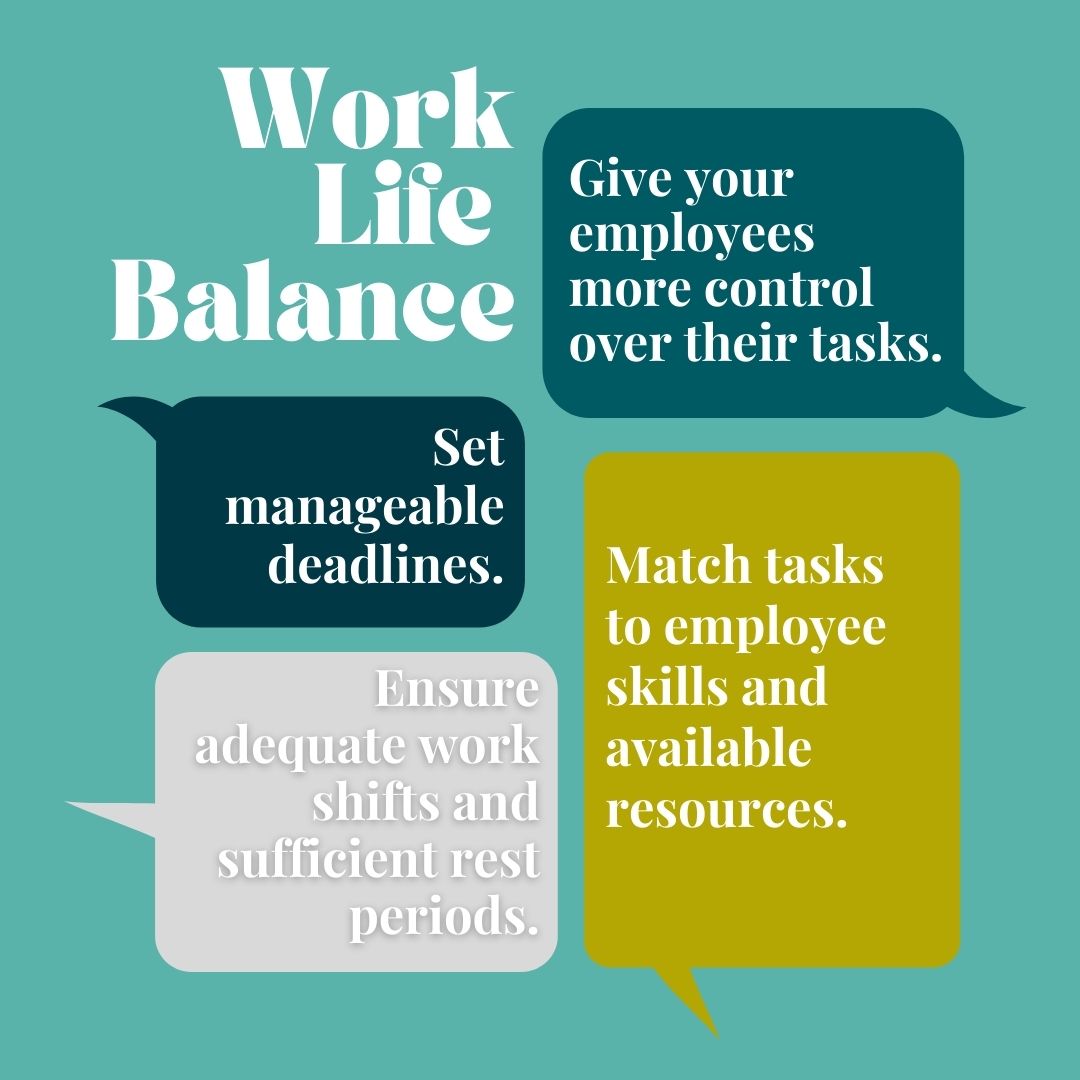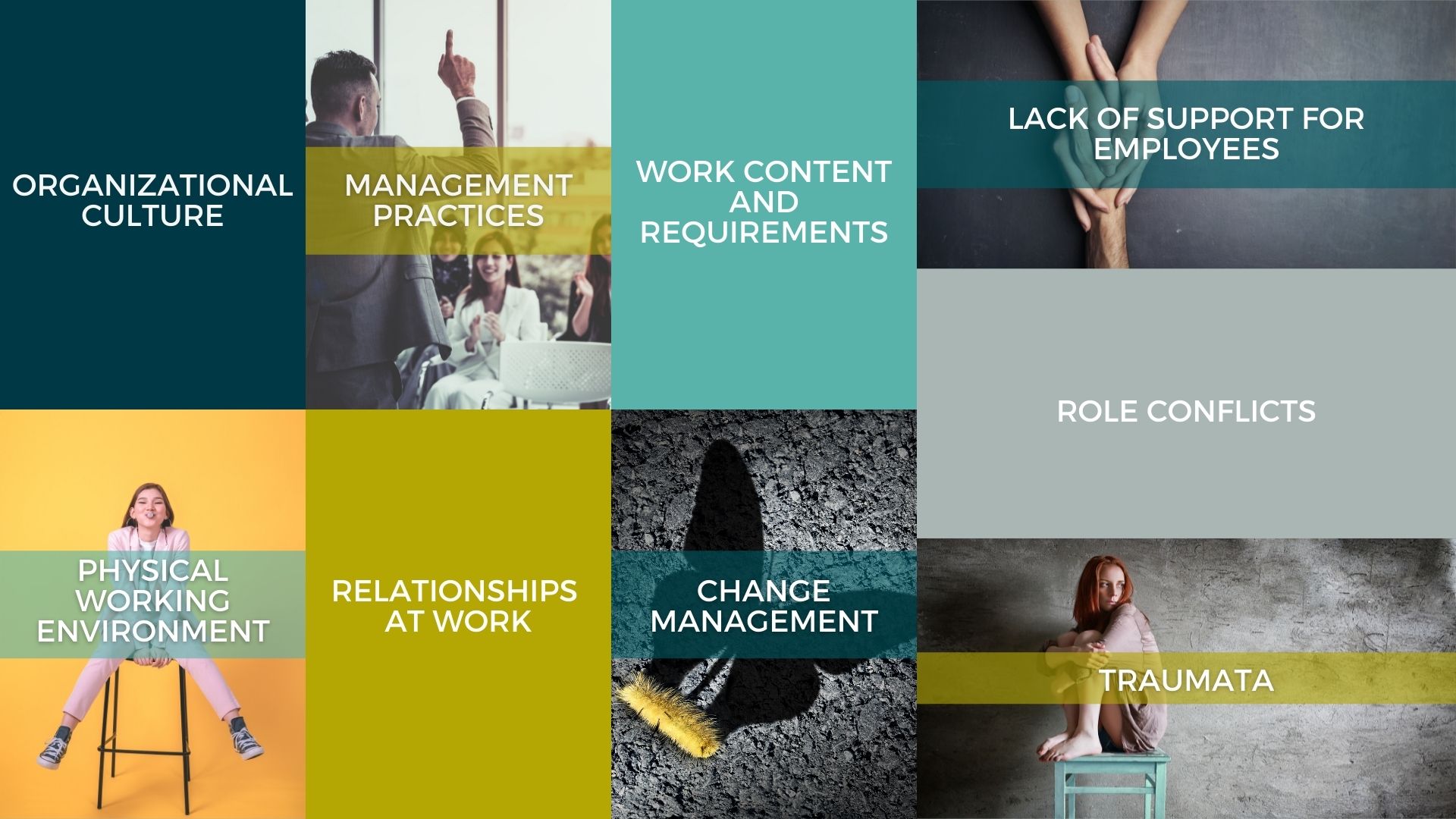Entrepreneurial and individual ways to reduce stress

Nine out of ten workers say that stress at work harms their wellbeing and mental health. At the same time, three out of five workers cannot count on the support of their superiors when it comes to coping with stress. And this happens even though it is known that long-term stress usually leads to physical illnesses; Sometimes, it even causes a burn-out.


This statistic makes one thing very clear: The number one stress factor is work related, whether it’s the workload, the lack of job security or a lack of work-life balance.
And: According to The American Insitute of Stress which has been regularly conducting studies on the subject since 1998, stress has been undeniably increasing in recent decades. The fact that stress makes us sick is well known; so well known that in New York, Los Angeles, and other U. S. cities, police officers who have a heart attack on the job or off duty are compensated because heart attacks are considered to be work-related damage caused by stress.
But wouldn’t it be more sensible to minimize stressful working conditions as far as possible so that the 40% of workers no longer experience their job as awfully stressful?
According to the American Institute of Stress study, workplace stress costs $300 billion in lost productivity every year. At the latest now, leaders should understand why it is vital to address this issue and take action.
What causes stress at work?
It should come quite naturally for every company to deal with stress-reducing factors and to take appropriate steps to eliminate them, where possible. Use a risk management concept to determine:
- what are the stress triggers
- where you will most probably find them in your corporate culture
- and what causes them.
Above all, you should pay attention to this
Causes of work-related stress
Some of the factors that often lead to work-related stress are:
- Long working hours
- High workload
- Changes within the organization
- Short deadlines
- Changing the tasks
- Job insecurity
- Lack of autonomy
- Boring work
- Insufficient skills for work
- Excessive supervision
- Insufficient working space
- Lack of adequate resources
- Lack of equipment
- Only a few opportunities for advancement
- Harassment
- Discrimination
- Bad relationships with colleagues or superiors
- Crises
10 steps to a stress-free working environment
1 Work-Life Balance
Working nonstop tires and exhausts employees. Everyone needs breaks to rest and recharge their batteries. Design the jobs you offer in such a way that a work-life balance is possible.


2 Flexible working models
Give your employees more autonomy over their working hours and allow them to work remotely if they wish so.
3 Clear Structures and Distribution of Roles
Employees feel stressed when they are not clear about their duties and responsibilities. Therefore, create a clear governance structure where everyone knows who they report to and who is responsible for what. This will improve work efficiency and contribute to a more relaxed environment.


4 Communication
Communication plays a crucial role in any company. When employees are able to communicate smoothly with their colleagues and supervisors, this reduces stress considerably. Ensure that all communication channels within the company are working properly. This way, you can make sure that people at other levels will receive the correct information.
5 Recognition and commitment
Involve your employees. A high level of employee commitment leads to higher productivity and satisfaction. Dedicated employees are committed to the goals and values of the company and are also motivated to contribute to the company’s success. In addition, employees need growth opportunities. If they do not exist, work morale and performance suffer and stress increases. Therefore, create recognition and reward programs.


6 Wellness
It is well known that exercise and a healthy lifestyle are essential to reduce stress at work. Introduce corporate wellness programs for your employees, e. g. in the form of paid membership in fitness and meditation centers, healthy food in the canteen, or free check-ups.
7 Prevention and De-escalation of Conflicts
Conflicts are inevitable and are part of our working lives. Reasons for a conflict may include promotion opportunities, salary disputes, feelings of lack of appreciation, and personal differences. Even if conflicts cannot be completely avoided, you can counteract and mitigate them by addressing the subject as quickly as possible instead of ignoring it. Looking the other way will only bring complications. But also avoid punitive reactions. Always try to solve conflicts positively and without negative reinforcement.


8 Silence
Noise is one of the primary causes of stress at work; high noise levels dramatically increase stress. Therefore, ensure a quiet environment and take precautions to keep the noise as low as possible. These include headphones with noise-cancelling, insulated walls and ceilings, or sound-absorbing partitions between workstations.
9 Cooperation and support
A work environment without support leads to stress and poor health. Ensure that employees are provided with adequate guidance by their supervisors or colleagues and foster a culture of collaboration and respect.


10 Corporate Culture
Schaffen Sie eine Create a corporate culture where all employees’ opinion is welcome. We need an environment where all questions can be asked and answered.
And what can each individual do?
In addition to the measures mentioned above to reduce workplace stress by the companies themselves, each individual can, of course, take steps to cope better with stress.
Concrete steps to reduce stress

Body level
- Get enough sleep
- Move more
- Eat healthy food
- Listen to soothing music
- Relax your muscles
- Breathe properly
The level of Mind
- Observe yourself and see what causes stress in you
- Create to-do lists and work them out successively
- Break large tasks down into smaller, more easily manageable subtasks
- Prioritize. “Stress is the inability to decide what is really important.”
- Create healthy rituals
- Get help


The level of the Soul
- Say ‘No’ more often
- Take a break from social media
- Accept stress as a natural factor of life
- Have positive conversations with yourself
- Make conscious pauses
- Practice Meditation and Mindfulness
Even if we follow all the well-meant advice and implement it, we can never altogether avoid stress; this makes it even more important to recognize stress as part of our lives. But don’t forget one thing:

Sources:
https://www.stress.org
Mind the Workplace Report, 2021
https://www.betterhealth.vic.gov.au/health/healthyliving/work-related-stress#what-are-the-main-work-related-stressors


